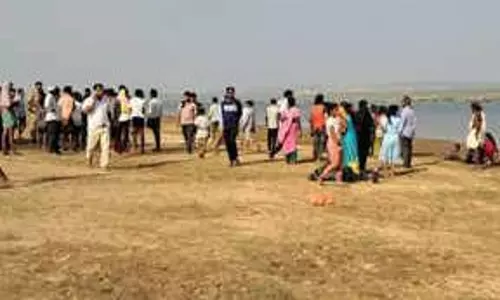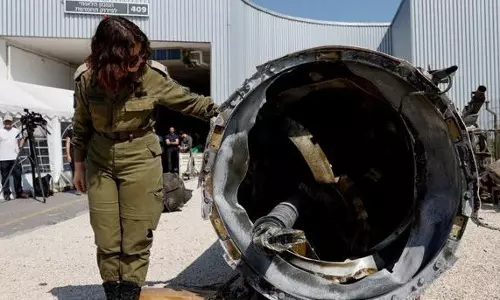
Sri Lanka crisis: Rajapaksa joins SLPP; blow to Sirisena-led SLFP
text_fieldsColombo: Sri Lankan strongman Mahinda Rajapaksa, who was appointed prime minister in a controversial move by President Maithripala Sirisena, on Sunday ended his five-decade-long association with the SLFP and joined the newly-formed Sri Lanka People’s Party (SLPP).
Rajapaksa’s move signalled that he would contest the snap polls, to be held on January 5, under his own party banner and not that of Sirisena’s Sri Lanka Freedom Party (SLFP).
The former president obtained the membership of the SLPP, launched by his supporters, Sunday morning.
His father Don Alwin Rajapaksa was a founding member of the Sri Lanka Freedom Party, which was formed in 1951.
The SLPP was formed last year by Rajapaksa’s supporters to create a platform for his re-entry into politics. The party in February’s local council election won two-third of the total 340 seats.
The 72-year-old strongman, who ruled Lanka for a decade from 2005, was unexpectedly defeated by his deputy, Sirisena, in the presidential election held in January 2015 with the support from Wickremesinghe’s United National Party (UNP).
However, the power-sharing arrangement between Sirisena and Wickremesinghe became increasingly tenuous on several policy matters, especially on economy and security.
Finally, on October 26, Sirisena abruptly ousted Wickremesinghe and replaced him with Rajapaksa, after three-and-a-half years of an estranged relationship with him.
The island nation plunged into a constitutional crisis following the move. Sirisena had suspended parliamentary proceedings until November 16. Later, owing to domestic and international pressure, he issued a notice to reconvene parliament on November 14.
However, on Friday, Sirisena dissolved parliament and announced snap polls on January 5 next year after it became evident that he did not have enough support in the House to prove the premiership of Rajapaksa.
Rajapaksa needed the support of minimum 113 parliamentarians in the 225-member House to prove his majority.























